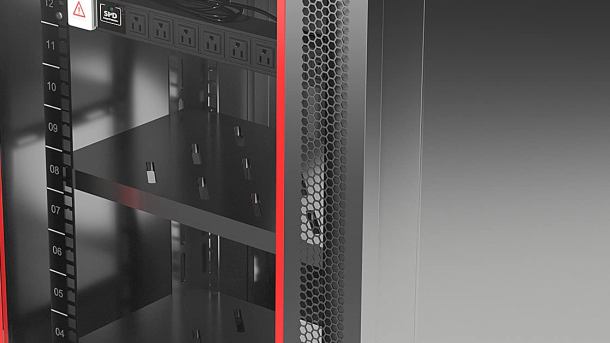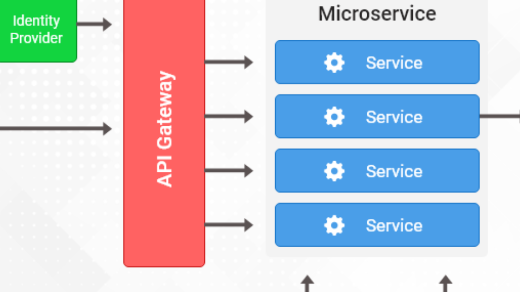In today’s digital age, the role of a System Administrator is crucial in maintaining the smooth operation of an organization’s IT infrastructure.
Overview of system administrator role

A **system administrator** plays a crucial role in managing an organization’s IT infrastructure. This includes overseeing computer networks, servers, and security protocols. System administrators are responsible for troubleshooting technical issues, ensuring system availability, and implementing backups. They may also handle tasks such as setting up user accounts, managing software updates, and monitoring network performance.
In today’s digital age, system administrators are increasingly required to have knowledge of **cloud computing**, **virtualization**, and **network security**. They must be familiar with operating systems such as **Linux** and **Microsoft Windows**, as well as tools like **Active Directory** and **Group Policy**. System administrators are essential for maintaining a smooth operation and minimizing **downtime**.
Furthermore, system administrators may work with **databases**, **websites**, and **email systems**. They are the backbone of an organization’s **IT infrastructure** and are crucial for ensuring that all systems are running smoothly. A career as a system administrator requires strong technical skills, problem-solving abilities, and attention to detail.
Necessary qualifications and skills
– Bachelor’s degree in Information Technology or related field
– Certification in Linux or other relevant technologies
– Proficiency in computer networks and operating systems
– Experience with cloud computing platforms like Microsoft Azure
– Knowledge of computer security best practices
– Ability to provide technical support and troubleshoot issues
– Familiarity with database management and virtualization technologies
– Strong understanding of networking concepts and systems administration practices
– Excellent communication skills for collaborating with team members
– Ability to adapt to new technologies and innovate solutions
– Experience with project management and documentation processes
– Strong problem-solving skills for resolving issues efficiently
Distinction between system and network administration

System administration focuses on managing an organization’s IT infrastructure, including servers, databases, and software applications. On the other hand, network administration is primarily concerned with managing and maintaining an organization’s computer network, ensuring connectivity, security, and performance. While system administrators deal with the internal workings of an organization’s systems, network administrators focus on the external connections that allow these systems to communicate with each other and the outside world.
System administrators are responsible for the configuration, maintenance, and troubleshooting of servers, operating systems, and software applications. Network administrators, on the other hand, manage the organization’s network infrastructure, including routers, switches, and firewalls. System administrators also handle tasks such as data backup, disaster recovery, and security patch management, while network administrators focus on ensuring network uptime, performance optimization, and network security measures.
Both system and network administrators play crucial roles in ensuring the smooth operation of an organization’s IT environment.
System administrator salary and career outlook
System administrator salary can vary depending on factors such as experience, location, and industry. On average, system administrators earn a competitive salary with opportunities for growth. As for the career outlook, the demand for skilled system administrators is expected to continue growing as organizations rely more on technology to operate efficiently.
System administrators are responsible for managing computer networks, ensuring computer security, and providing technical support to users. They work with various technologies such as Operating systems, Microsoft Azure, and Database systems.
Having a strong foundation in computer hardware and networking is essential for a successful career in system administration. Pursuing professional certifications can also enhance job prospects.
Essential certifications for system administrators
Linux training is a crucial certification for system administrators looking to excel in their roles. This certification equips professionals with the necessary skills to manage Linux servers efficiently and effectively. Additionally, obtaining a certification in network security is essential for system administrators to protect their organization’s computer network from cyber threats. This certification demonstrates expertise in implementing firewalls, intrusion detection systems, and access controls to safeguard the network.
Moreover, a certification in cloud computing is becoming increasingly important for system administrators as more organizations move their data centers to the cloud. This certification enables professionals to effectively manage cloud-based servers and services, ensuring seamless operations.
Tips for preparing for a sysadmin interview
– **Research** the company and understand their **business model** before the interview, showing that you are genuinely interested in the position.
– Be prepared to discuss your experience with different **operating systems** and **networking** technologies, including **Linux**.
– Highlight your knowledge of **Active Directory**, **Intranet**, and **Group Policy** if relevant to the role.
– Practice answering common interview questions related to **system administration** and be ready to discuss your experience with **patching**, **backups**, and **intrusion detection**.
– Showcase your **problem-solving** skills and ability to work under pressure, as well as your expertise in **computer hardware** and **networking** equipment.
– Be ready to discuss any **professional certifications** you hold and how they have prepared you for the role.



